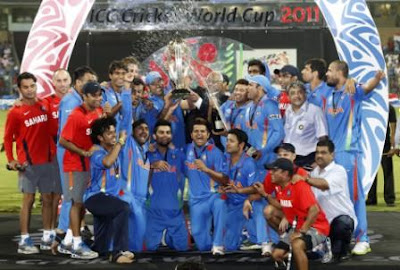 |
From Wikipedia - reportedly taken
at Baker Street Tub Station |
\ˈī-rə-nē - noun - (1) : incongruity between the actual result of a sequence of events and the normal or expected result (2) : an event or result marked by such incongruity
This is a compilation of "calling-it-as-I-see-it" observations based on my life in India and the US. It is neither anti-India or anti-USA, nor for that matter, pro-India or pro-US. It is like I said, a compilation of calling-it-as-I-see-it observations. I know there is more than meets the eye to most of these and surely, there are rational explanations for others, but here goes:
India is a tolerant state, but we have no patience.
Americans on the other hand are generally patient, but have low tolerance.
The US is a dominant global force,
but GK about the world (in particular, geography and culture) is surprisingly poor.
India is fiercely territorial,
but wants to adopt (read: ape) all trends foreign.
Whereas, the US is inherently cosmopolitan,
but will resist new ways or balk at non-American ways of doing things
(e.g., my wife's gynecologist who freaked out and cautioned against
contamination when she found out we were making curds at home)
Indians tend to over-engineer and have complex decision-making setups,
but Americans have trouble placing or processing a simple order for "coffee"
(Colombian vs. French Roast vs. Vanilla vs ...,
with cream vs. without cream,
sugar vs. Splenda,
here vs. to-go).
Or water (regular vs. sparkling, plain vs. flavored, with ice vs. without ice).
Americans have sophisticated recycling technology, but haven't learnt conservation.
Indians believe in karma and after-life and are God-fearing,
but seem to care little about reputation and lie without compunction.
Life in America revolves around instant-gratification,
but Americans are much better at seeing the big picture.
Whereas, instant-gratification is not our culture,
but we have narrow perspectives and short-term views.
And yet, Indians save for a rainy day,
While the Americans live for today.
The US has an outstanding social support infrastructure, sophisticated medical technologies and established, widespread healthcare networks and infrastructure,
And yet, the fabric of domestic support is rather fractured, its population is plagued by life-threatening or arcane allergies and it is easier to buy a gun than life-saving drugs.
We've inherited bureaucracy that can nauseate,
but haven't inculcated system-oriented/process-driven thinking.
Americans are light on bureaucracy,
but are highly process-oriented.
And yet (or perhaps, I should say "therefore")
no one handles chaos and surprises as well as Indians do.
Americans are paranoid about privacy
And yet, acts, facts and artifacts they expose to public view
makes "private" a redundant word in the dictionary.
Conversely, India gave the world the Kama Sutra,
but we rebel at the idea of formal sex education.
And yet, make Bollywood movies that are so suggestive,
It might make the Playboy look like an Archies comic book.
The Americans have almost made creativity a science,
And yet, India produces far better ads than the US.
Indians are very particular about "what others will think" and love to give advice,
but get very defensive when we receive even constructive feedback.
America is by & large a "cold country" (even the supposedly-harsh summer only lasts a couple of months), but it's obsession with ice and fascination with cold meals is inscrutable.
Indians are subservient by nature,
but find it very difficult to follow any rules.
Whereas Americans, care a damn,
but are sticklers for the rule.
Americans are extremely civil and affable,
Always smiling, holding the door for you and waiting,
And yet, are litigious to a point that makes you wonder
whether money is indeed the key to happiness.
India is a country of a billion people,
but we are yet to learn how to conquer scale.
America is high on hygiene,
but the only place they find to put up water fountains is outside public restrooms.
We are high on rituals and ceremonies in India,
but don't quite have the penchant for "doing things in style".
Religion and spirituality do not matter in the US like they do in India,
and yet, "In God We Trust" is the official motto of the USA.
Much as I am sometimes harshly sarcastic about life in both nations,
Fact is, I have enjoyed the best of both nations
And have had the privilege of living in what I consider to be the best states in both nations:
Goa and California.
Jai Hind! In God We Trust!












